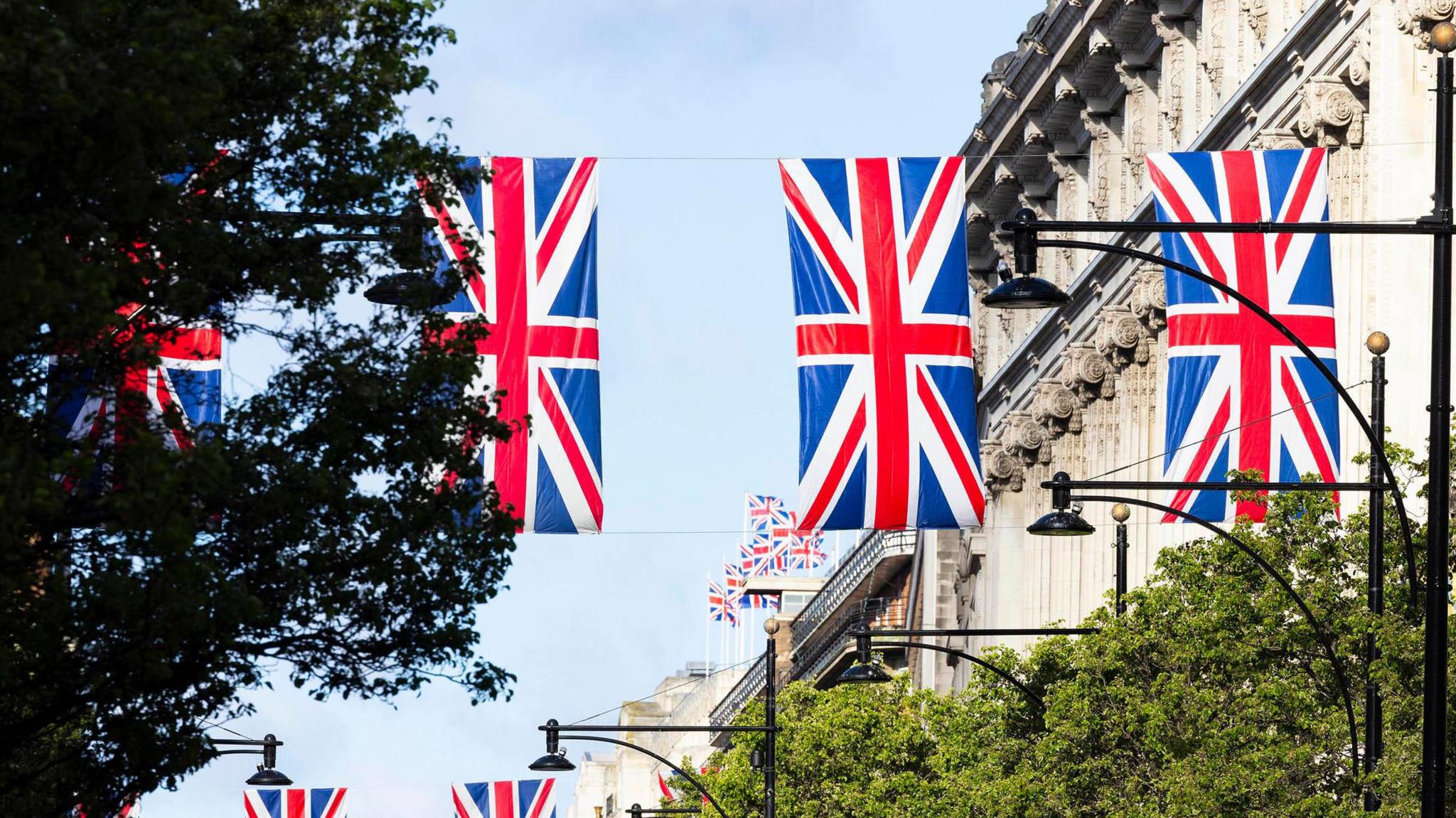'VE Day was the beginning of a different life'
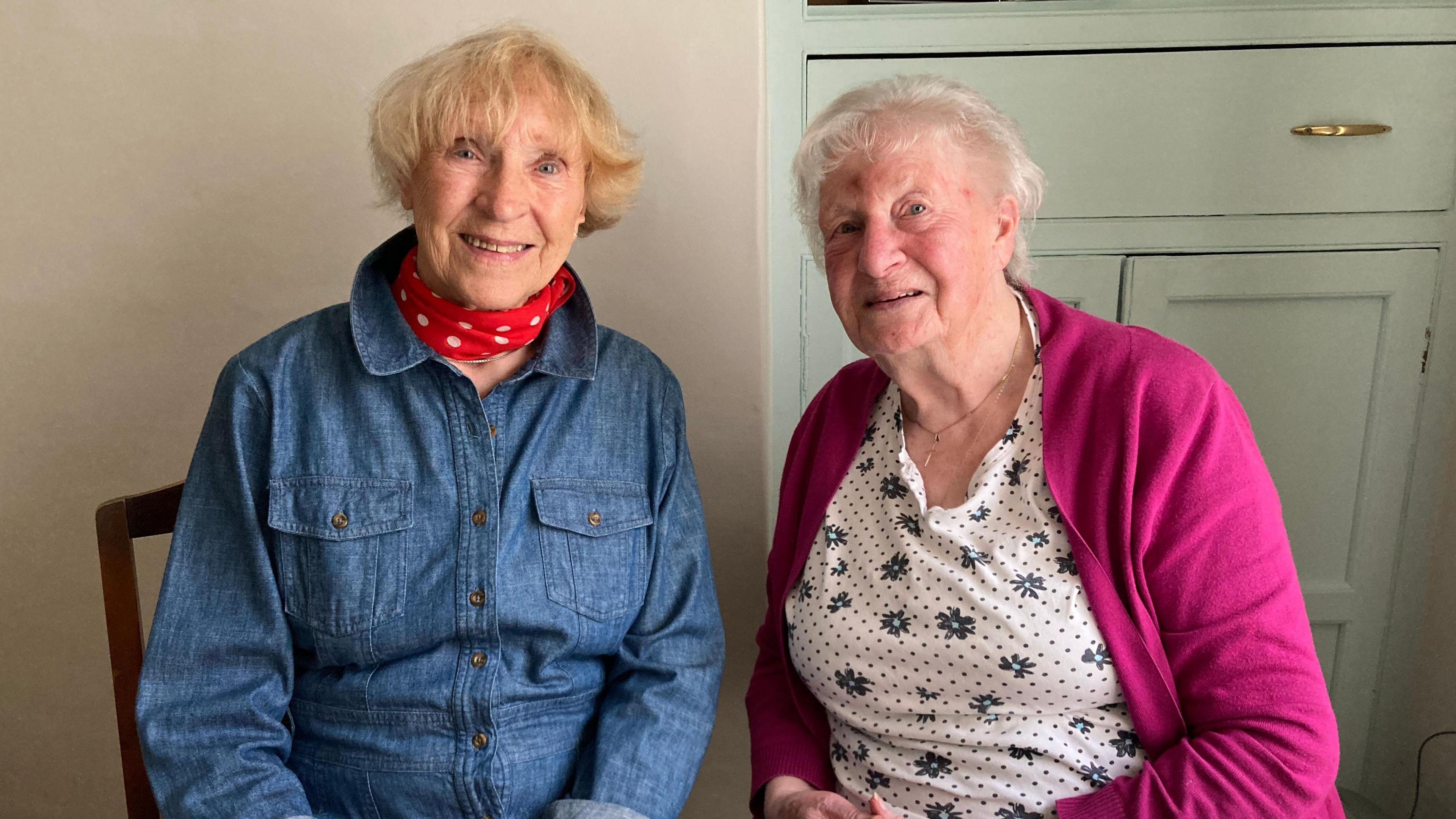
Jean Stockdale and Pearl Hessle remember being told the war was over
- Published
"Can I have your attention. The war is over." Those were the words Jean Stockdale recalled hearing during a lesson at school 80 years ago.
Then aged 11, the girl and her family were among thousands of people in York who took to the streets to celebrate Victory in Europe Day after Germany's unconditional surrender the day before.
"We thought it was the beginning of something rather than it was the end of the war," Mrs Stockdale said.
"It was the beginning of a different life, now in peacetime."
When Mrs Stockdale came home from school that day she remembers walking into town with her family and seeing everyone's windows flung open as the streets filled with music and dancing.
Her best friend Pearl Hessle, 91, shared similar memories, distinctly recalling how her mother told her to take off all the blackout curtains, which had been used to protect their home during air raids.
She said: "On the day war was declared over, I remember my mum saying 'tonight we are all going out and walk down the street and you can look in everybody's rooms because all the lights will be on in everybody's houses.
" 'It will be light, light, light everywhere'. And that's what we did, it was magic."
Listen: York residents remember VE Day
In Sheffield, a nine-year-old girl called Edith Briggs stayed with family friends in Greaves Street when the announcement came in.
A flurry of activity erupted, coats were pulled over nightwear and people began gathering in the street to light several bonfires that had been prepared in advance.
"What a night," Mrs Briggs, now 89, told the BBC. "The war was over."
"A few days later, my grandad and auntie organised a street party to celebrate.
"Of course the community spirit was so wonderful. It was a great time, we were all so happy."
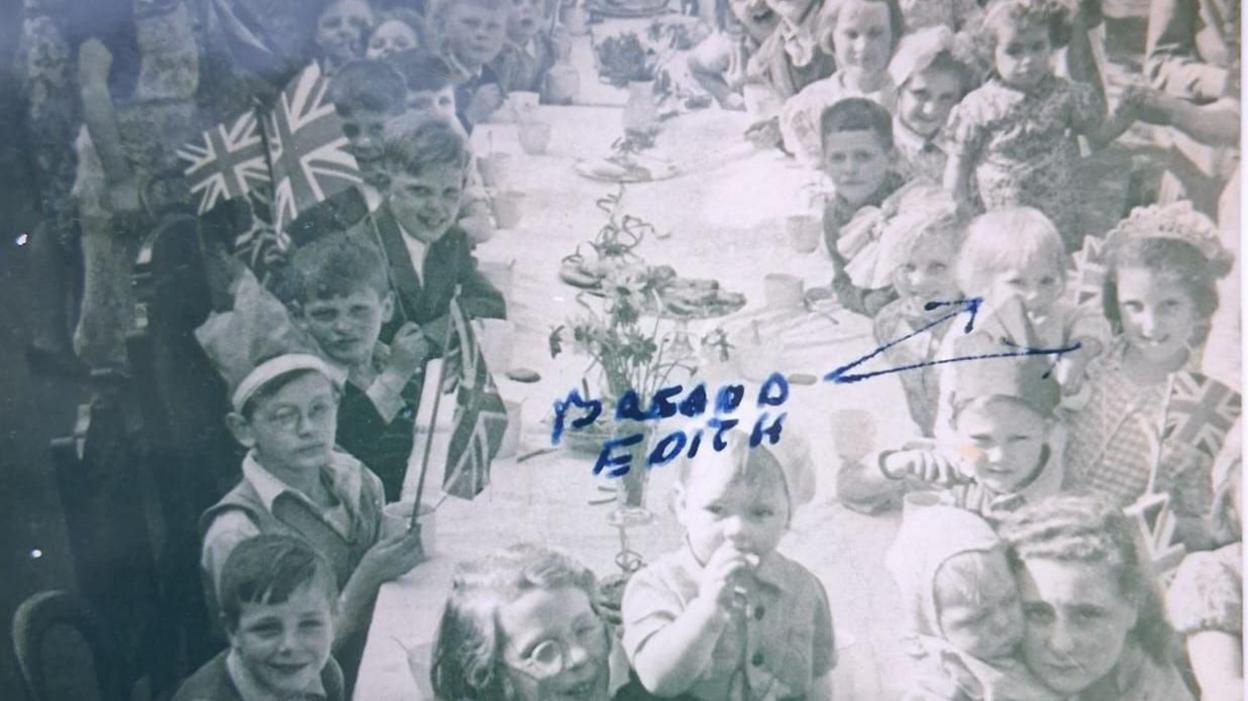
Edith Briggs at the street party in Sheffield several days after VE Day in 1945
Pamela Rae, who now lives in Ilkley, worked as a radar mechanic for the Women's Royal Naval Service (WRNS) during the war.
The centenarian recalled marching in the victory parade through Glasgow where she had read English and philosophy at university before the war broke out.
"It was very exciting," the mother of three said.
"We started at the top but marching down a hill is not as easy as on the level, it was very difficult to keep in step."
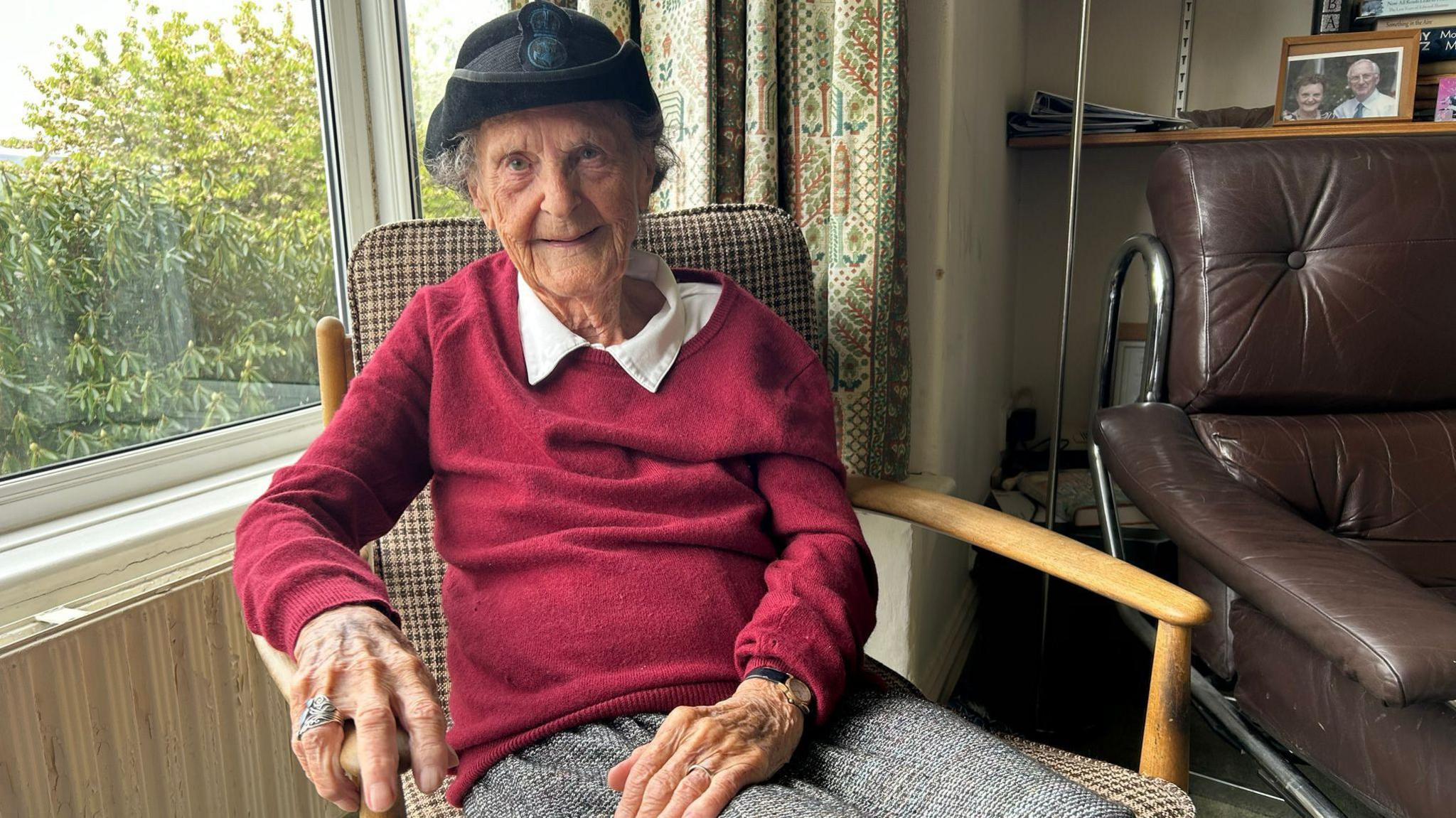
Pamela Rae at her home in Ilkley recalls VE Day 80 years ago
As a budding journalist, Mrs Rae decided to write an article about the parade under the pseudonym "A leading Wren" for the Glasgow Herald.
"I was quite pleased but two days later an officer came round and asked 'who wrote that article?'," she recalled.
"I had to report immediately to the Admiralty offices. My crime? Communicating with the press, contrary to King's regulations and Admiralty instructions.
"So I was absolutely petrified of course."
Mrs Rae said she was sure she would end up in prison for breaking the rules but luckily, she only ended up getting her pay docked for three days.
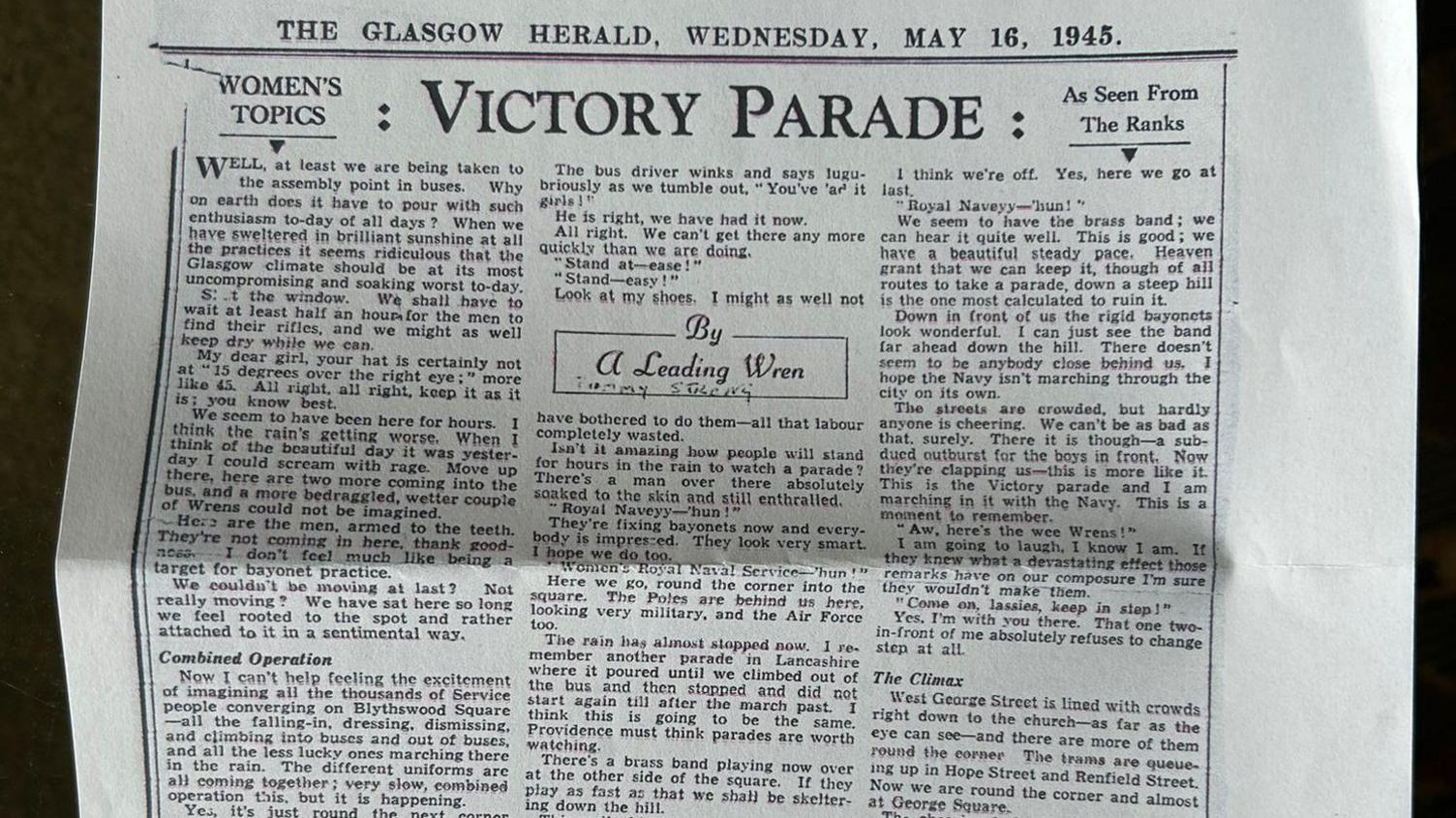
A copy of Mrs Rae's article published in the Glasgow Herald in 1945
Six days after VE Day, on 14 May, Francesco Fiorentini, eight, stood at the banks of Lough Foyle on the north coast of Ireland and watched as the first German U-boats began to surrender to Allied forces.
"All the ships, especially German U-boats, they surfaced and then of course they gave up and were all taken in," the 88-year-old, who now lives in York, recalled.
"It was a sight to behold."
Listen to highlights from South Yorkshire on BBC Sounds, catch up with the latest episode of Look North.
Get in touch
Tell us which stories we should cover in Yorkshire
Related topics
- Published29 April 2012
- Published8 May
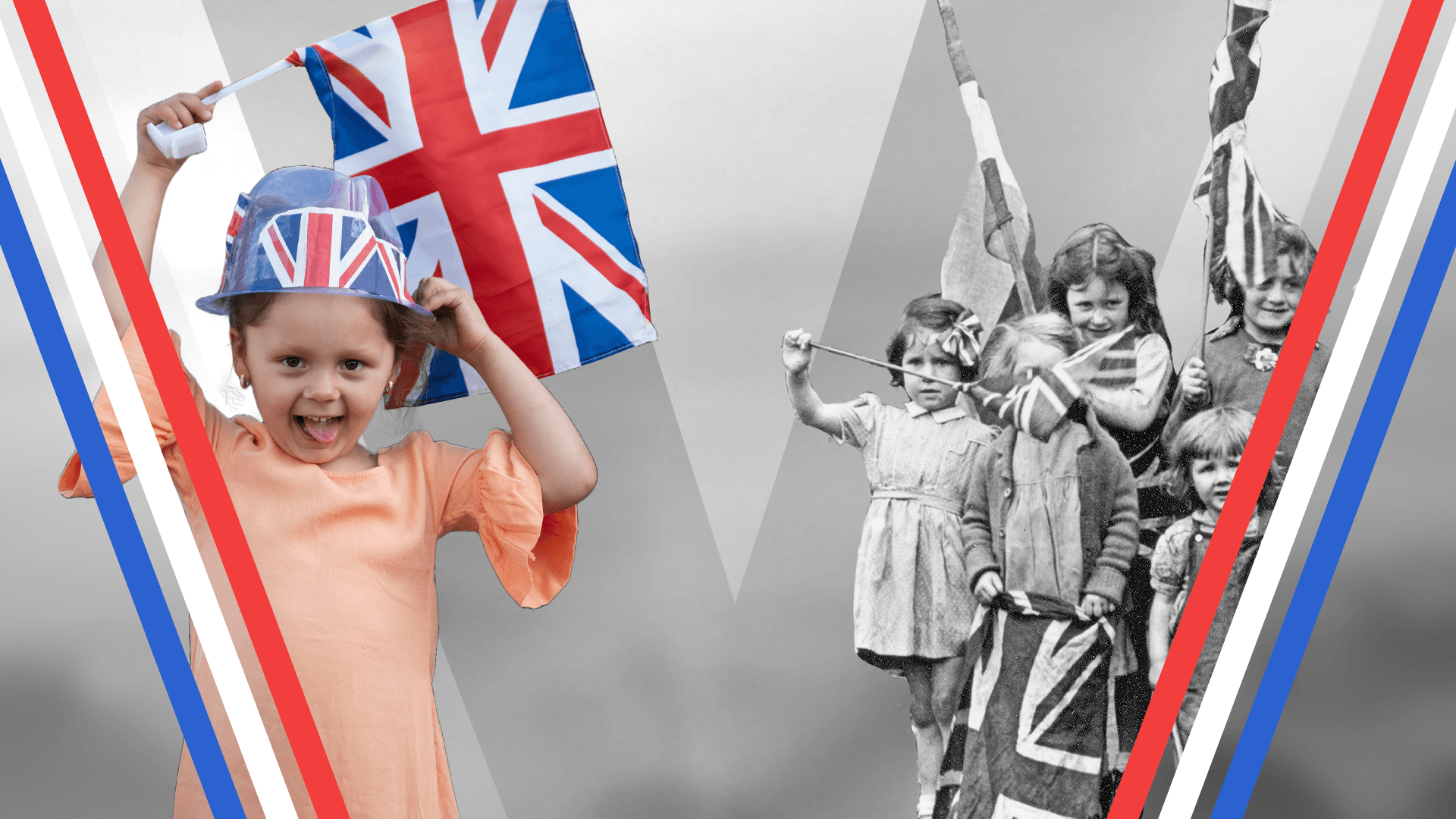
- Published26 April
